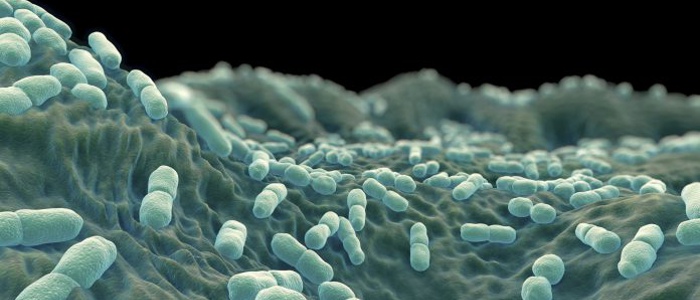The NICD does surveillance for all communicable disease across South Africa, including Listeria. The NICD works closely with the National Department of Health, and the Department of Agriculture, Forestry and Fisheries on outbreak investigations.
Listeria can only be diagnosed by doing laboratory tests. Through our extensive network of laboratories – the National Health Laboratory Service, and through connections and support from the private laboratory networks, we are able to count the exact number of cases of listeria. Further, all cases of listeria are notified to us through surveillance channels. We publish these data on our website, www.nicd.ac.za in situational reports. These may be found on our landing page.
Listeriosis is caused by the bacterium Listeria monocytogenes. It is transmitted to persons through contaminated food. Most otherwise healthy persons exposed to Listeria do not fall ill. The vast majority of cases are mild, and the most common form of disease is an acute, self-limiting
gastroenteritis which presents with fever and diarrhoea; this usually resolves on its own without medical intervention.
Some infections are serious and persons may present with meningitis, or bacteraemia (when the bacteria enters the bloodstream), or pregnancy-related complications, which includes miscarriage, stillbirth, premature delivery and infection of the newborn. To date, and to our knowledge, there have been 748 cases of listeria in South Africa in the public and private sectors. The provincial distribution, and additional information on the outbreak are available on our website.
What is the government doing about this outbreak? The National Department of Health is coordinating a multi-sectoral response with all agencies within government. We are firstly interviewing all persons who have been diagnosed with Listeria to understand what food they have eaten, and identify trends. Secondly we are working with the food safety and quality industry to obtain quality data from food control and to sample food production facilities. Thirdly, we have worked with infectious diseases physicians to draw up guidelines for diagnosing and treating the disease. Fourthly we are working with health promotion to increase awareness of how to prevent listeriosis. Presently no food sources that are contaminated with the outbreak strain have been found, including amongst poultry and poultry products.
Until the source of listeria is identified, the WHO recommends that we follow the ‘FIVE KEYS to SAFER FOOD’
- Wash hands and surfaces before preparing food. Wash hands before and after meals
- Separate raw and cooked food, and don’t mix utensils and surfaces when preparing food
- Cook food thoroughly – all bacteria are killed above 70oC
- Keep food at safe temperatures – either simmering hot, or in the fridge
- Use safe water and safe ingredients to prepare food.
Additional resources may be found on the NICD website, or persons may email ‘outbreak@nicd.ac.za’ for support.
Source: www.nicd.a.c.za
Johannesburg, 12 January 2018. As of 12 January 2018, a total of 748 laboratory-confirmed listeriosis cases have been reported to NICD since 01 January 2017. Final outcome data are available for 160 of the patients, of whom 67 have died. ...
The National Institute for Communicable Diseases (NICD) is supporting and investigating the Listeria Outbreak in South Africa for the South African Government. Here is their news on the outbreak. ...
The National Institute for Communicable Diseases (NICD) is reporting a very large outbreak of Listeriosis in South Africa. Here are some facts that you should know.
...





